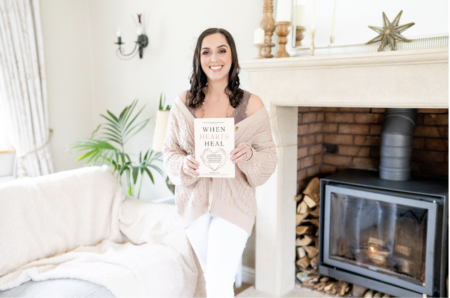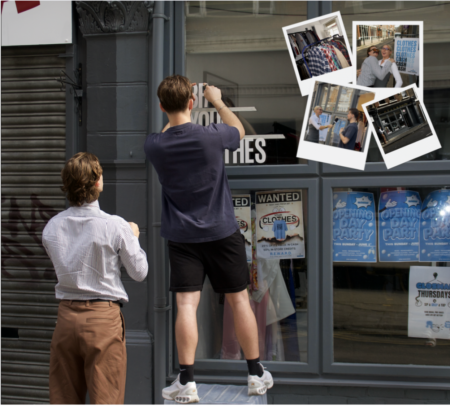Have you ever caught yourself squinting at the fine print or holding your phone at arm’s length? Well, you aren’t the only one!
Our eyes aren’t invincible. In fact, approximately 77 % of women and 68% of men reported wearing glasses or contact lenses in the UK in the year 2020. That’s huge.
But what actually happens to our eyes as we age, and what can we expect to see as we get older?
What happens to the eyes as we age?
As time goes by, our eyes undergo subtle transformations, navigating the ebb and flow of aging. Here’s a glimpse into the intricate changes that may unfold over the years:
Presbyopia
Around the age of 40, presbyopia may appear, complicating our ability to focus on close-up objects. This shift is attributed to the gradual stiffening of the eye’s lens.
Lens clouding – Cataracts
With time, the eye’s lens may adopt the appearance of a misty window as cataracts become more prevalent. Visual clarity takes a hit, akin to peering through smudged glasses.
Retina’s evolution
The retina, our visual canvas, experiences change too. Age-related macular degeneration (AMD) can alter central vision, resembling the slow fade of a cherished photograph.
Tears in flux
Dry eyes, a frequent companion in the aging process, introduce discomfort and blurred vision. Whether it’s diminished tear production or changes in tear composition, it creates a miniature desert in our eye’s delicate landscape.
Generally speaking, our eyes gracefully adapt, and we can live long and happy lives seeing clearly – but that doesn’t mean we don’t need help along the way.
How can we slow down eyesight deterioration?
There are proactive steps to slow down the tempo of eyesight deterioration. Here are some things to consider:
Regular eye check-ups
Schedule routine eye examinations with an optometrist. Early detection of issues allows for timely intervention and can significantly slow down the progression of certain eye conditions.
Balanced diet for eye health
Nourish your eyes from within. Include foods rich in vitamins and minerals, especially those with antioxidants like vitamin A, C, and E. Leafy greens, colorful fruits, and fish can be eye-friendly additions to your diet.
Protective eyewear
Shield your eyes from harmful UV rays by wearing sunglasses when outdoors. Additionally, consider protective eyewear in situations where your eyes may be exposed to potential hazards, like during certain sports or home improvement activities.
Stay hydrated
Adequate hydration supports overall health, including that of your eyes. Proper moisture levels help prevent dry eyes, a common age-related discomfort.
Reduce screen time and blink regularly
Prolonged screen exposure can strain your eyes. Implement the 20-20-20 rule: every 20 minutes, look at something 20 feet away for at least 20 seconds. Also, remember to blink regularly to keep your eyes moist.
Quit smoking
Smoking has been linked to an increased risk of several eye conditions, including macular degeneration and cataracts. Quitting smoking can contribute to better long-term eye health.
Manage chronic conditions
Conditions like diabetes and hypertension can impact eye health. Manage these conditions effectively through lifestyle changes and medications under the guidance of your healthcare provider.
Stay active
Regular physical activity promotes overall well-being, including eye health. It helps regulate blood flow to the eyes and may reduce the risk of age-related macular degeneration.
Quality sleep
Ensure you get sufficient, quality sleep. Lack of sleep can contribute to eye strain and discomfort. Create a conducive sleep environment and maintain a consistent sleep schedule.
Keep an eye on your prescription
If you wear corrective lenses, keep your prescription up to date. Wearing outdated or incorrect lenses can strain your eyes and contribute to vision deterioration.
Remember, aging is a natural process, but adopting these lifestyle habits can contribute to maintaining optimal eye health and slowing down the pace of eyesight decline.
Take eye health seriously and see for longer
Like the rest of us, our eyes age. Understanding the factors that contribute to eyesight deterioration allows us to work with the changes rather than against them. From routine eye check-ups to the simple act of wearing a pair of sunglasses, every step we take nurtures our eyesight.
As we navigate the complexities of aging, the choices we make today profoundly influence the clarity of our vision tomorrow. Embrace the wisdom that comes with the years, and gift your eyes the attention they deserve. By adopting healthy habits and protective measures, we not only slow down the march of time but also ensure that our eyes continue to tell the vibrant stories of our lives.
















